[ad_1]
How about a tall glass of iced pineapple juice and a flavoured straw as an appetiser? Thanks to edible tableware and biodegradable containers made from agro-residue, you might be able to eat from a plate and then the plate as well. Cups made from rice bran, rice husk and rice straw, plates and takeaway containers made of apple prunes and pineapple leaves are just some of the options open to those who want to say no to single-use plastics.
Rice husk, bran and straw, wheat bran, pineapple waste, apple prunes, banana waste and the like are getting converted into biodegradable products.
Rishab Suri, CEO and co-founder of Qudrat in Thiruvananthapuram
| Photo Credit:
SREEJITH R KUMAR
Qudrat, an eco-friendly tableware brand, operating from KINFRA in Thiruvananthapuram, makes biodegradable plates from rice husk, rice bran and rice straw, non-edible straws from coconut leaves, edible straws in five flavours and spoons in two flavours. Biodegradable plates with compartments, tumblers and bowls are next in line.
Fact file
Shelf life of biodegradable tableware is 10 to 12 months if kept in packets.
Can be used for serving hot solid and liquid food.
Has enough tensile strength to hold the food item according to the shape.
Fully degradable within one to two months. The product can also be used as a plant manure or cattle feed.
Manufacturing process uses minimum water and less effluents are generated.
Source: CSIR-NIIST
At Thooshan, a biodegradable tableware brand based at Angamaly near Kochi, the product range includes plates made of wheat bran, and edible straws made of rice flour. Their latest product is cake base board from wheat bran. By July, the brand will have cutlery and container boxes that make use of rice bran.
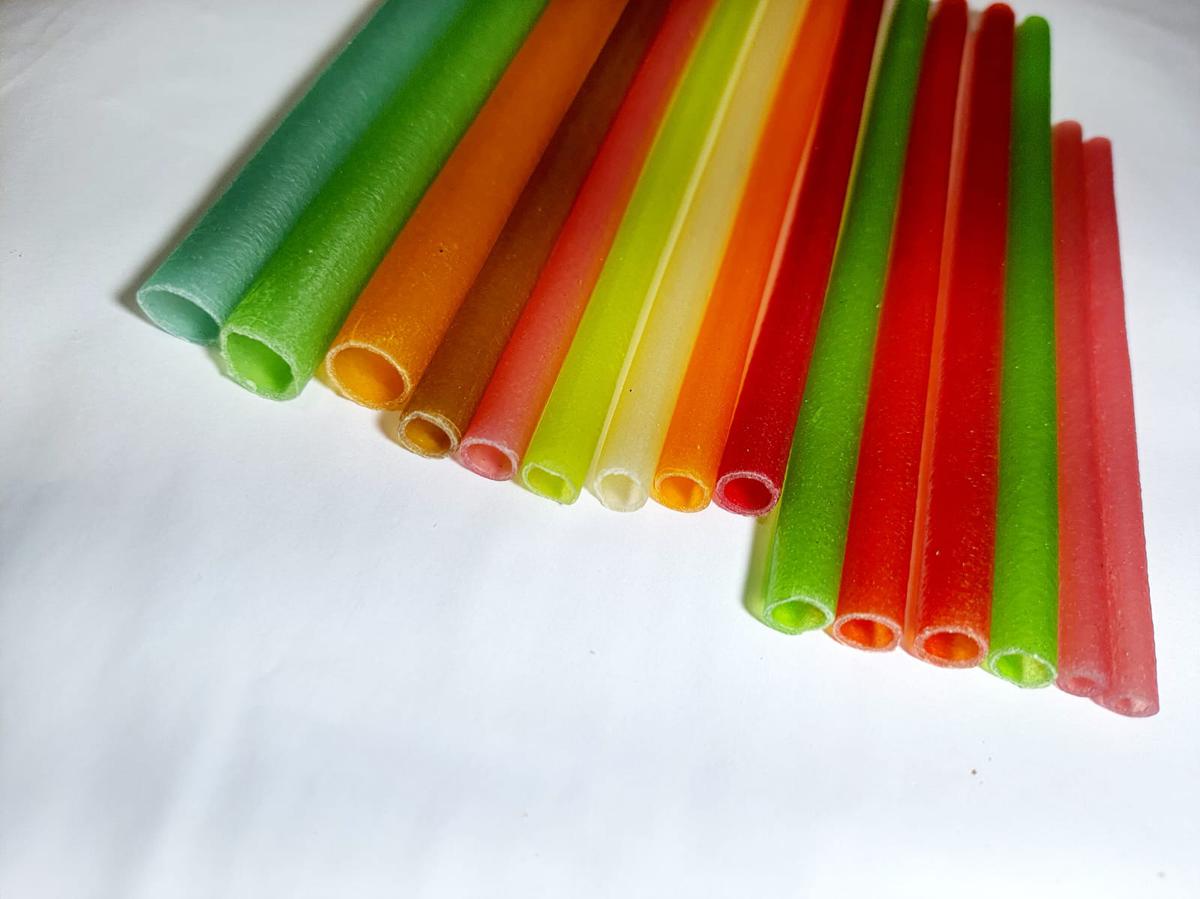
Edible straws from rice flour developed by Thooshan
| Photo Credit:
SPECIAL ARRANGEMENT
“Companies are keen on manufacturing sustainable, eco-friendly tableware. There is tremendous interest in this area and we have been getting enquiries from across the country,” says C Anandharamakrishnan, director of the National Institute for Interdisciplinary Science and Technology (NIIST), at Pappanamcode in Thiruvananthapuram. NIIST, which comes under the Council of Scientific and Industrial Research (CSIR) laboratory, has been providing the technology to those interested in manufacturing biodegradable products.
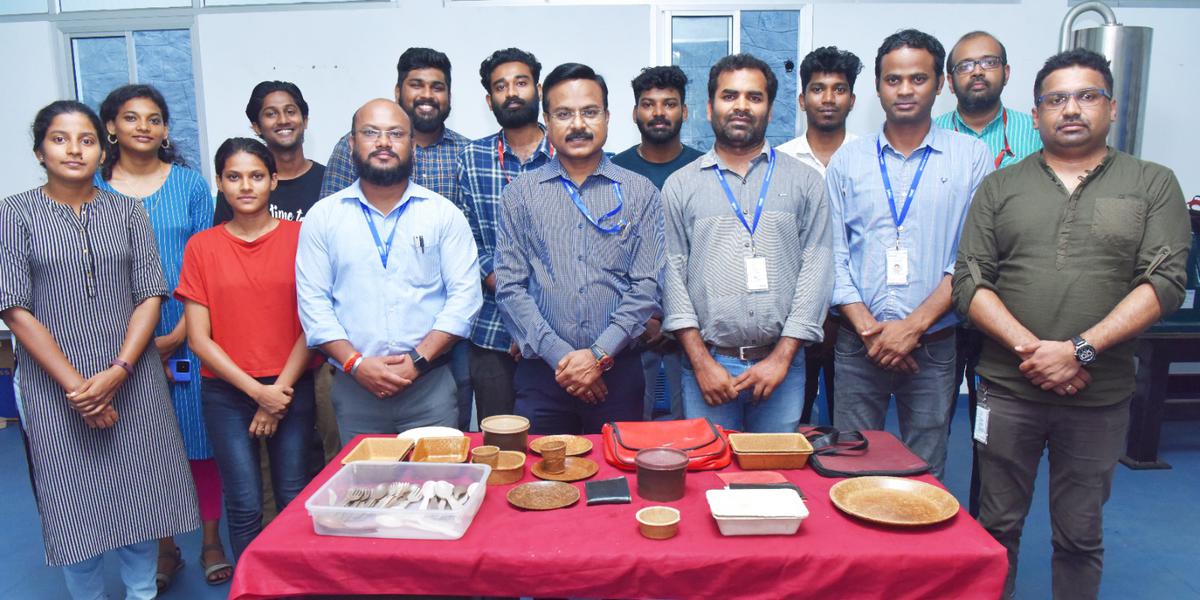
CSIR-NIIST director C Anandharamakrishnan (centre) with the team that developed the technology for manufacturing biodegradable tableware
| Photo Credit:
SPECIAL ARRANGEMENT
CSIR-NIIST has been at it since 2018. “We provide the technology and the companies do the research and development according to their need,” Anandharamakrishnan adds.
CSIR-NIIST has handed over the technology to 14 firms, including Thooshan and Qudrat. “Rice and wheat processing mills produce a lot of agri-waste. While Himachal Pradesh has to deal with apple prunes, in Madhya Pradesh waste is generated during processing of pulses,” says Dr Anjineyulu Kothakota, scientist with CSIR-NIIST.
Go green
Companies that have bought the technology from CSIR-NIIST are based in Himachal Pradesh (Himjoy), Punjab (Biochoice), Gujarat (Unigreen), Karnataka (BM Impex), Tamil Nadu (Ecosmart), and Sungod Agfarms (Maharashtra). Vazhakulam Agro And Fruit Processing Co. Ltd (VAFPCL) at Muvattupuzha in Ernakulam district, which is into commercial processing of fruits, predominantly pineapple, has taken the technology to manufacture biodegradable products from pineapple waste, especially leaves. The Institute has also associated with ITC group.
According to Vinaykumar Balakrishnan, founder of Thooshan, which started operations in 2021, demand is going up for biodegradable plates and cutlery.
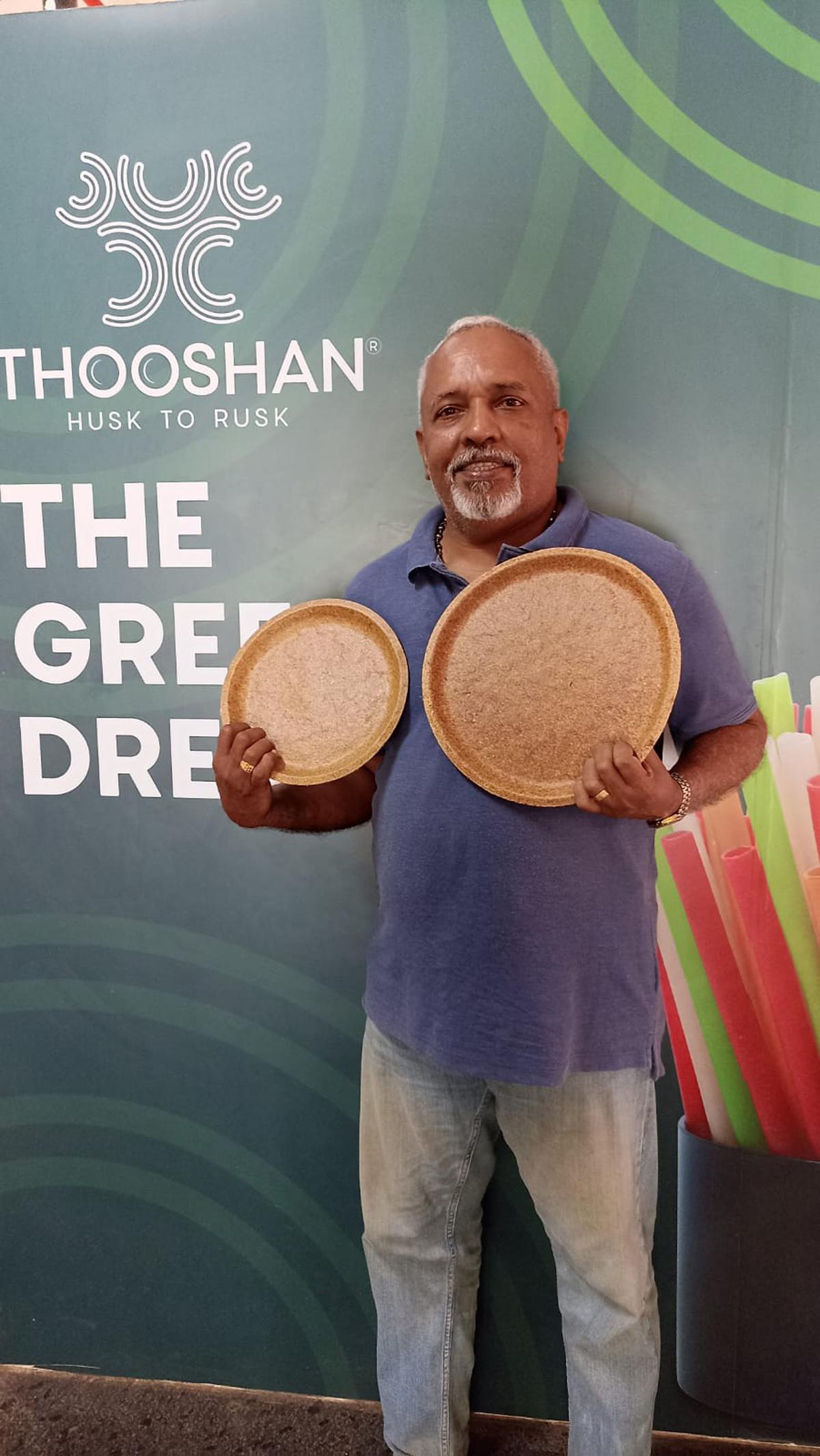
Vinaykumar Balakrishnan, founder of Thooshan
| Photo Credit:
SPECIAL ARRANGEMENT
“It was an achievement when our plates and straws were used at the G20 Sherpa meet at Kumarakom in March. The straws are made from broken rice that is generated during rice milling. The mills usually sell them to liquor companies. However, we managed to convince some of those in Andhra Pradesh to hand it over to us and that’s how we started working on this product. Tapioca or corn starch is used as the binding agent. In addition to standard straws, there are jumbo straws, cocktail straws and straws for use in cartons,” he says.
He adds that the cake base board was launched on demand. “Usually, MDF (medium density fibre) is used to make a cake base board and it costs ₹90. However, the board from wheat bran is priced at ₹30 and it can used as manure or cattle feed after use,” he explains. Thooshan also has thali plates made from wheat bran.
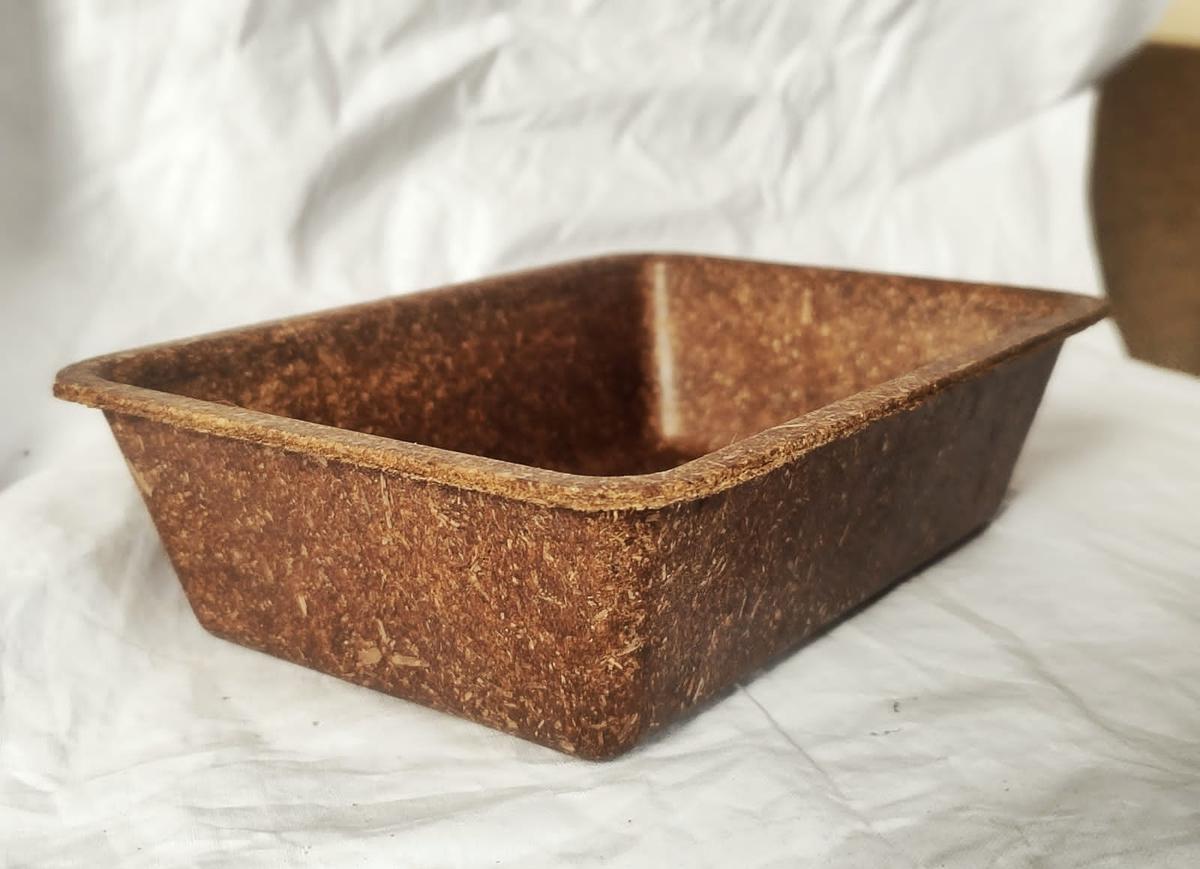
Biodegradable container made from apple prunes by Himjoy, based in Himachal Pradesh
| Photo Credit:
SPECIAL ARRANGEMENT
In the case of Rishab Suri, CEO and co-founder of Qudrat, it was a plan to diversify from their core business of automobiles that made him try his hand at biodegradable cutlery. “We wanted to focus on a field that will emerge as a primary sector in future. That’s when we combined sustainability, clean technology and agriculture in the area of biodegradable tableware,” he explains.
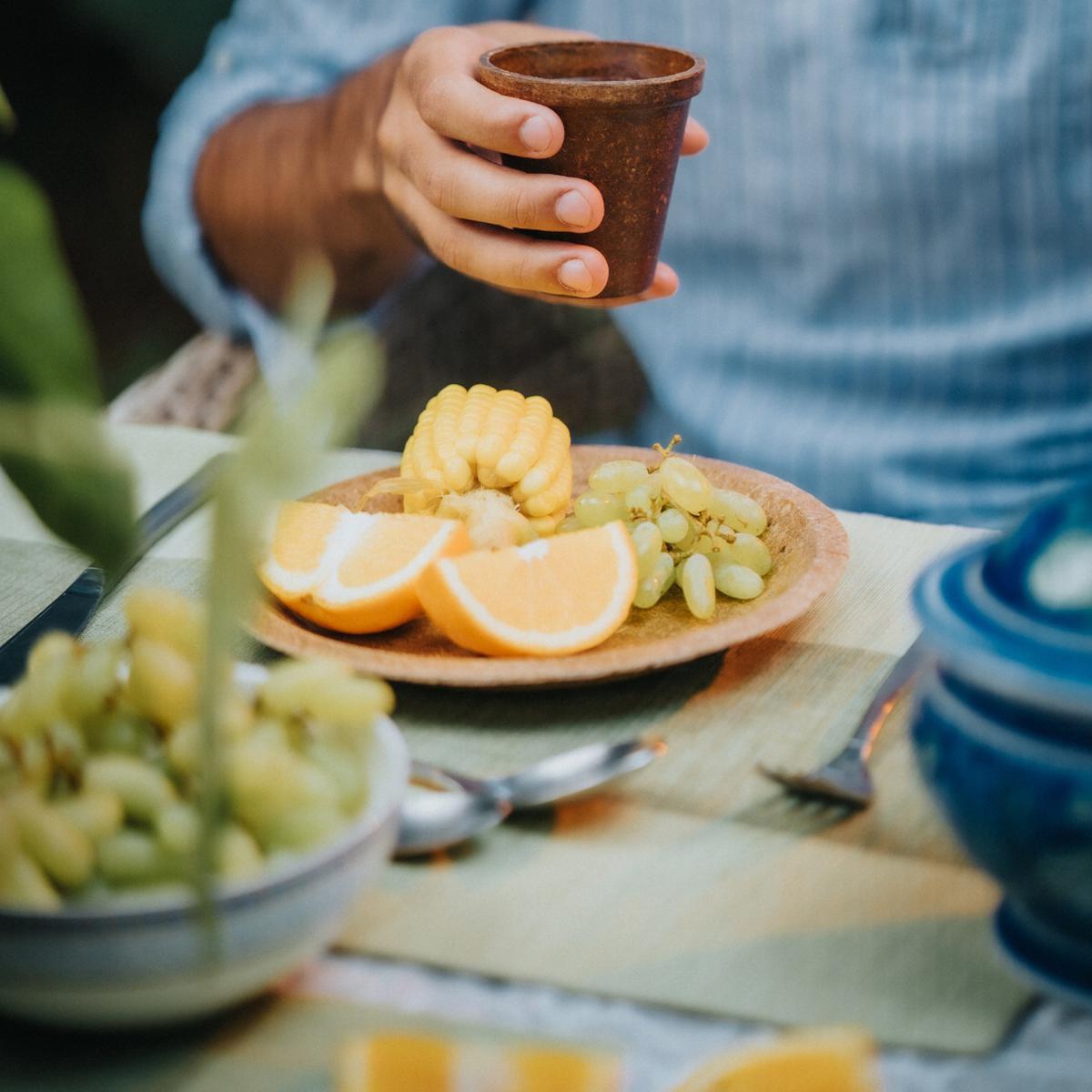
Biodegradable tableware from Qudrat in Thiruvananthapuram
| Photo Credit:
SPECIAL ARRANGEMENT
He adds that the demand for such tableware is from the hospitality sector, aggregators and religious places. “We get more traction from metros such as Mumbai, Bengaluru, and Delhi. Now that we are available on Amazon, we are getting orders from Mizoram and Nagaland too. We hope to make it available in the US market soon,” says Rishab.
Himjoy, a manufacturer in Himachal Pradesh that has taken the technology from CSIR-NIIST, is a couple of months away from launching cutlery made from apple prunes. For Kanwar Bhanu Uday Singh, co-founder of Himjoy, starting Himjoy was a way to tackle the heaps of apple prunes in Himachal Pradesh where 80% lof the people are involved in apple farming.
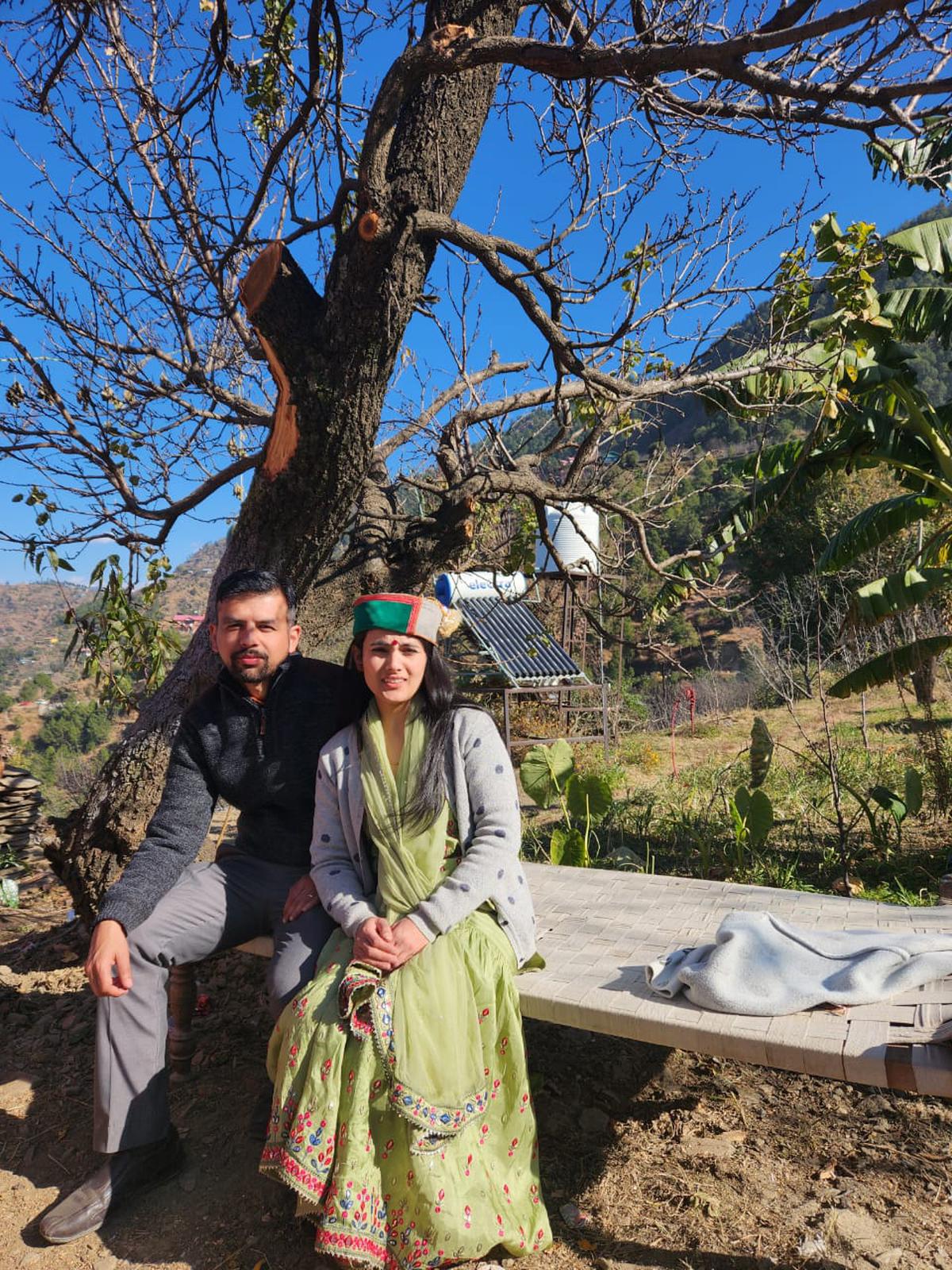
Kanwar Bhanu Uday Singh and wife, Devangni Kanwar, founders of Himjoy, which makes biodegradable tableware from apple prunes in Himachal Pradesh
| Photo Credit:
SPECIAL ARRANGEMENT
“I have an orchard and like all other farmers, we used to burn the prunes in the orchards. We didn’t know how to deal with it until this solution came up,” says Uday Singh, who runs the business with his wife, Devangni Kanwar. “Commercial production of the cutlery will commence in a couple of months’ time. We are also looking at manufacturing pellets and briquettes from the prunes. We plan to work with apple pomace (by-product of juice manufacturing) and biomass, which has apple prunes and leaves,” he explains.
According to Anandharamakrishnan, CSIR-NIIST is looking at making edible and non-edible cutlery from millets and millet waste. The Institute has also produced samples of garden pots made from banana and pineapple waste. It has also set up a biodegradable testing centre for end-to-end testing of products.
“It’s time we change the way we think about waste,”Vinaykumar asserts.
[ad_2]
Source link


